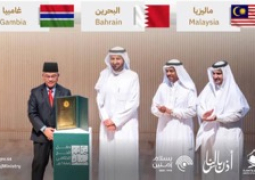
The forum, which brought together various stakeholders to the Metzy Residence Hotel, looked at detailed presentations on insights gained from a five-day study tour to Ghana by various Gambian stakeholders organised by the Ministry of Energy.
The study tour focused on learning best practices in implementing and enforcing Minimum Energy Performance Standards for air conditioners and refrigerators, as it has become a key activity under the “National Framework for leapfrogging to Energy Efficiency and Climate Friendly Air Conditioners in The Gambia” project.
Participants on the tour gathered valuable information from Ghana on critical areas which include the prohibition of importing used products that do not meet the minimum requirements, ensuring that non-compliant products are checked at customs and confiscated.
Other areas learned from were the enactment of regulations for energy-efficient products and the development of financial mechanisms to enhance the purchase of energy-efficient and climate-friendly cooling products with a particular focus on the role of local banks.
The forum discussed how the findings and practices learned from the tour could be successfully implemented in The Gambia.
Peter D. Mendy, Principal Energy Officer at the Ministry of Energy, took participants through the presentations on the tour, objectives of the tour, activities undertaken during the tour, main lessons learnt, and the conclusions.
Speaking at the opening ceremony, Lamin Camara, Permanent Secretary at the Ministry of Energy, said various stakeholders on the tour had the opportunity to engage with officials of the Ghana Energy Commission (GEC), the Ministry of Energy, suppliers and distributors of air conditioners and refrigerators and the Ghana Standards Authority (GSA).
The study tour was one of the key activities under the Green Climate Fund (GCF) financed readiness project entitled “National Framework for Leapfrogging to Energy Efficient and Climate Friendly Air Conditioners and Refrigerators in The Gambia”.
This endeavour seeks to develop an integrated policy strategy that will result in a legislative framework for energy-efficient and climate-friendly air conditioners and refrigerators in The Gambia, Mr Camara said.
The study, he added, was designed to assist Gambian stakeholders in gaining a practical understanding of the implementation of minimum energy performance standards and the impact of various financial mechanisms to proliferate the availability of energy-efficient refrigerators and air conditioners.
He confirmed that their delegation had the opportunity to learn from Ghana’s experience in implementing their national framework to leapfrog to energy-efficient cooling products.





